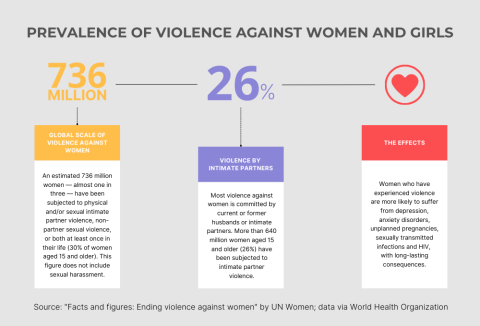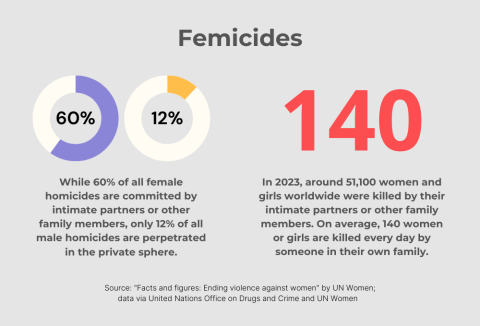
A large iceberg breaks from the Grey glacier in 2017 at the Torres del Pine National Park in Magallanes, Chile. (CNS/Joel Estay, EPA)
'Women don't complain; they suffer'
In a subsequent interview with Global Sisters Report, Augustine said that in India, "the institution of family is very precious." That results in comfort, love and security when the family functions well. But when violence becomes a dynamic, harm to women ensues, often masked by silence.
Too often, "women don't complain; they suffer," Augustine said, with some extreme cases ending in suicide, like that of Shiny Kuriakose.
Fellow Medical Mission Sr. Babita Kumari, whose ministry is in Pune, Maharashtra state, India, described gender-based violence as a "crisis," particularly in rural areas where female submission is more culturally accepted and where economic dependence on husbands and male members of families is more prevalent.
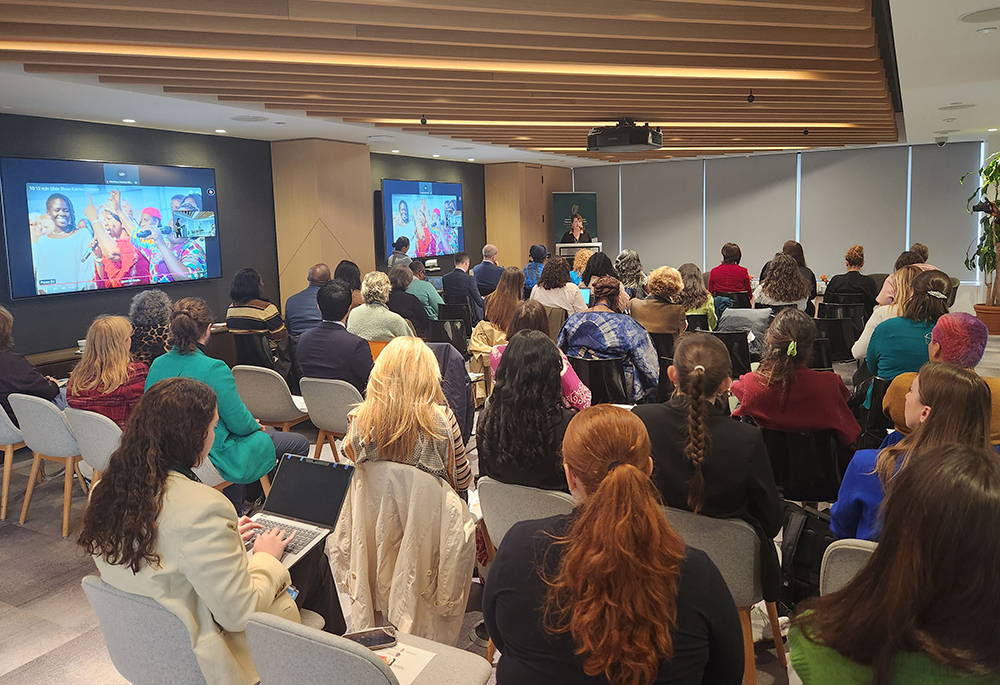
A March 20 Commission on the Status of Women event at the Irish Mission to the United Nations focused on gender-based violence and the ways survivors should lead the way to change. (GSR photo/Chris Herlinger)
Cultural norms are also more acute — when so much is framed as sacrificing for the sake of family and for children in particular, she said. "The great sacrifice is for the children," Kumari told Global Sisters Report. "Women will say, 'I have a child. Where can I go?' "
Another problem in rural areas: less reporting of violence and abuse to police who, in turn, are far less likely to investigate cases of domestic abuse than authorities in urban areas, Kumari said.
Just prior to the Commission on the Status of Women, UN Women issued a report that took stock of the 30 years since the Beijing Declaration took a larger view. The report noted that 30 years ago, "violence against women was far from mainstream policy agendas," but that the Beijing Platform for Action "recognized the continuum of violence, abuse and harm, which takes multiple forms from rigid gender stereotyping, child marriage and sexual harassment to intimate partner violence and femicide."
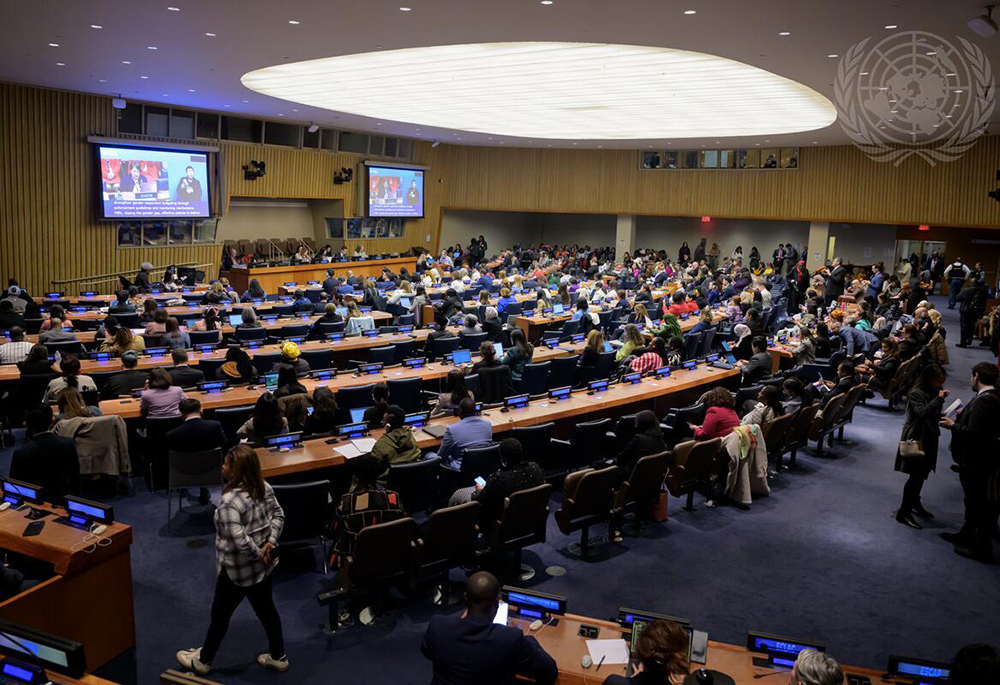
A view of the third plenary meeting of the United Nations' 69th session of the Commission on the Status of Women (UN photo/Manuel Elías)
These forms of violence "all have a common root cause: deeply entrenched gender inequality and discriminatory norms," according to the report, echoing what Augustine, Kumari and numerous speakers said at the commission. "The response to violence against women and girls has yet to meet the scale of the problem," particularly in an era described as one of "misogynistic backlash."
There are, of course, new challenges that were unthinkable 20 years ago, the report noted. Digital media have fanned new forms violence, "with bots multiplying the speed and scale of online violence." In addition, generative artificial intelligence “has opened additional spaces to popularize discriminatory stereotypes."
Those new challenges add a new gloss to established patterns — and the patterns, according to UN Women, are sobering, with almost one in three women globally having been victims of some kind of violence. Meanwhile, it is estimated that a woman is killed every 10 minutes, with nearly two-thirds killed by intimate partners or family members, the UN said.
In Haiti, one case of femicide
There is a name for such crimes — femicide — and that, too, became a topic of discussion during the Commission on the Status of Women. One of those addressing that challenge was Catheline Théodora Désiré, a feminist activist and Haitian doctoral student at the University of Miami.
Désiré spoke during a March 13 commission event held at New York University that looked at femicide in the countries of Haiti, Democratic Republic of Congo and Ivory Coast.
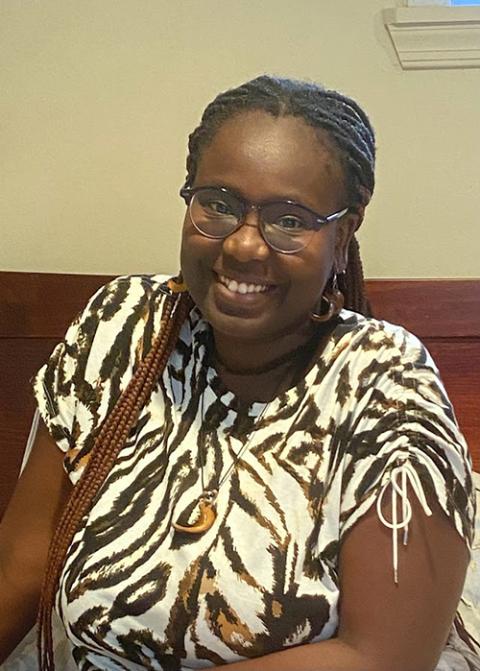
Catheline Théodora Désiré (Courtesy photo)
There, she shared the case of Marlene Colin, a nurse who was stabbed 17 times in front of her daughter by her male partner in May of 2018 in Labidou, Haiti, a suburb of the coastal city of Jacmel. Colin was Désiré's cousin but was like an "adoptive mother," Désiré told Global Sisters Report. "She basically raised me and babysat me when I was little."
Fifteen months after the crime, Colin's murderer was eventually convicted and sentenced for the crime — though the sentence was only for 10 years.
Désiré said the murder was traumatizing for her and for Colin's other friends and family. "It's not something I would wish on anyone," she said of the trauma.
But equally traumatizing was coming to realize how desensitized Haitian society was about the case and femicide in general. So much of what was publicly said about the case, including on social media, focused on "what [Colin] 'did to deserve it' and not on the act itself."

